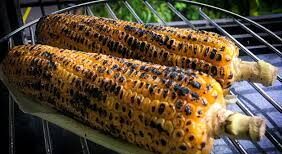Rainy season foods are essential for maintaining a healthy immune system and preventing infections. The lower immune system is the reason that various common infections find their way to the human system.
A healthy diet of rainy season foods is the best method to keep the body in perfect health, and some of the tips are:
•Lower the salt content in the diet to retain and increases the blood pressure in the body. However, this leads to additional problems in the rainy season, and hence avoiding salt is the best way during rainy weather.
•Foods and drinks that bring down the body temperature like buttermilk, lassi, watermelon will increase the risk of swelling in the body and avoiding such foods will help recover the body from water retention.
•Adding garlic to the rainy season foods will help to improve the immune system and is essential to be added to the diet.
•Take more amounts of curd and yogurt as it reduces the risk of harmful bacteria entering the body. Substitute milk for curd.
•Try to prefer warm drinks except caffeinated ones to bestow good health to keep the body warm and safe.
•Include corn oil instead of sesame, peanut and mustard oil as they invite more infections.
•Try to prefer only boiled and purified water as it is a season prone to more infections. Water is the primary source of contamination, and hence one must take proper care here.
•Limit the amount of meat in foods we eat in the rainy season and substitute it with chicken.
•Herbal warm water with ginger, tulsi, cinnamon, pepper, cardamom and cloves help to prevent infections and increases immunity levels.
Monsoon is one of the favourite seasons, perfect for everyone when the climate is not hot or cold. This moderate temperature with rain heightens the senses, and the lovely weather creates the urge to eat something that matches the environment perfectly, including rainy season fruits. The above-mentioned rainy season foods satisfy both the soul and body and offer good health.
Foods to Avoid During Monsoon
There are several unhealthy eating practices that one should avoid, as these food habits are more prone to increase your risks of contracting infections during the monsoon season.
•Avoid eating food at restaurants as well as street food stalls, as the temperature during monsoon is ideal for bacterial and fungal growth and there is an increased risk of food and waterborne infections.
•Avoid reusing fried oil, as it can be toxic to your health.
•The temperature and humidity of this season are favourable to bacterial and fungal growth, especially on green leafy vegetables. So, it is important to wash these veggies thoroughly and cook them on high heat before eating.
•Best to refrain eating seafood during the monsoon.







